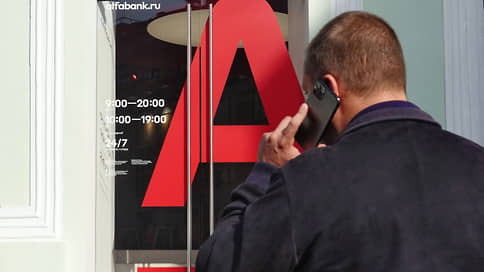“Kommersant” got acquainted with the first documents in the case of Alfa-Bank and Rosbank, challenging the EU sanctions
[ad_1]

“Kommersant” got acquainted with the first documents in the case of Alfa-Bank and Rosbank, challenging the EU sanctions. For the most part, their reasoning and demands are similar. Lawyers are skeptical about most of the arguments, emphasizing that sanctions are quickly introduced, but slowly and difficultly removed.
Details of the proceedings of Alfa-Bank and Rosbank against the Council of the EU appeared on the website of the Court of Justice of the European Union. The lawsuits were filed in May, but at that time there was no information even about what exactly the parties were contesting (see Kommersant on May 25). At the same time, Tinkoff-Bank also filed an application with the court, but there are no details on it yet.
As follows from the documents, both Alfa-Bank and Rosbank dispute the imposition of sanctions and insist that the court must cancel the paragraphs of EU decision 2023/432 and EU Council regulation 2023/429 regarding banks. They were adopted as part of the tenth sanctions package.
Unlike Alfa-Bank, Rosbank “to the extent that it concerns the applicant” disputes the very norm, introduced at the end of February 2022 and stipulating the process of blacklisting persons. In particular, the bank asks to cancel the EU decision and regulation, which established a new criterion for imposing sanctions on “leading entrepreneurs or legal entities, organizations or bodies involved in sectors of the economy that provide a significant source of income to the Russian government.”
The wording is extremely broad, and in the absence of clarifications from the EU, “it is very difficult to argue with it,” said Artem Antonov, adviser to Kulkov, Kolotilov and Partners. But banks have a number of arguments.
Thus, Alfa-Bank points out that the EU Council does not have complete, reliable and sufficient evidence to justify the sanctions. Rosbank also insists that the EU relies on outdated data, and the justification for the application of sanctions contains erroneous statements, and there is no evidence of a significant contribution of the bank to the resources of the Russian government.
In addition, the EU Council violates “the balance between the foreign policy goal of the sanctions and the restriction of the economic rights of the applicant and, as a result, contributes to the impoverishment of the population of the Russian Federation,” Alfa-Bank argues. “We are talking about the bank’s clients, whose savings were invested in financial instruments placed in Europe. We insist that the Council of the EU does not have the right to freeze the personal savings of Russian citizens under the guise of sanctions against the bank as a financial institution, ”the bank explained to Kommersant. In 2022, Alfa Investments and Alfa Capital submitted documents to unlock the assets of their clients.
Rosbank, among other things, insists that the EU Council could take other, “less restrictive” measures. The bank declined to comment. The argument of Rosbank, in particular, refers to the fact that in fact the EU Council abused its powers and applied sanctions against the bank, instead of imposing them on a specific individual, Mr. Antonov notes. He believes that in this case he is referring to Vladimir Potanin (who controls the bank), who is already on the US SDN list.
The argument that there are no grounds for adding banks to the sanctions list, according to Mr. Antonov, will not work, since both banks have the status of systemically important and pay high taxes. This, the lawyer believes, is enough to fall under the wording “constituting a significant source of income for the government of the Russian Federation.” “The sanctions mechanism by its nature is characterized by significant pressure not only on the object of sanctions pressure, but also on almost all persons directly or indirectly interacting with it,” adds Roman Khaminsky, partner at BKHK law firm.
Based solely on these arguments, the prospects for successfully challenging the sanctions are “extremely doubtful,” said Mr. Khaminsky. Geopolitical disagreements continue, the lawyer emphasizes, “which can logically mean the consistent continuation and strengthening of sanctions pressure by Western countries on the Russian Federation, institutions critical for the functioning of the country, business and its beneficiaries.”
[ad_2]
Source link





